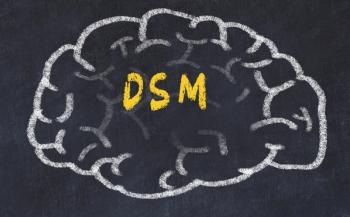
FDA Accepts New Drug Application for Cytisinicline for Smoking Cessation
Key Takeaways
- Cytisinicline's NDA acceptance by the FDA marks a potential breakthrough in smoking cessation treatment, with a PDUFA date set for June 20, 2026.
- ORCA-2 and ORCA-3 trials showed cytisinicline significantly increased smoking abstinence rates compared to placebo, with over 2000 participants involved.
Achieve Life Sciences gains FDA acceptance for cytisinicline, a promising new drug for smoking cessation, showing significant abstinence rates in trials.
Achieve Life Sciences announced the US Food and Drug Administration (FDA)’s acceptance of a New Drug Application (NDA) for cytisinicline for smoking cessation in adults.1 A Prescription Drug User Fee (PDUFA) date has been assigned for June 20, 2026.
The NDA submission provided data from the company’s ORCA-2 and ORCA-3 phase 3 trials, showing that cytisinicline treatment resulted in significantly greater rates of smoking abstinence as compared to placebo.2 These trials included over 2000 participants, and compared smoking abstinence in a placebo group to administration of cytisinicline for either 6 or 12 weeks along with behavioral support. Participants were adults who smoked 10 or more cigarettes daily and desired to quit smoking. ORCA-2 was the first large scale clinical trial of cytisinicline in the US, and ORCA-3 followed it to replicate results and test efficacy and safety. The ORCA studies found that both 6 and 12 week cytisinicline administrations were more effective than placebo, returning significantly higher continuous smoking abstinence rates both at the end of drug treatment and at a 24 week follow up. These trials ultimately found cytisinicline to reduce nicotine cravings, and it was well tolerated in patients.
In ORCA-3, of participants receiving 6-week cytisinicline administration, 14.8% were abstinent from smoking for week 3 to 6 compared to 6% in placebo; in the 12-week treatment group, 30.3% of were abstinent for weeks 9 to 12 versus 9.4% of placebo. For continuous smoking abstinence rates, the 6-week treatment group showed 6.8% abstinence from weeks 3 to 24, and the 12-week treatment group showed 20.5%. Reduction in nicotine cravings was also greater for treatment groups than placebo (−15.2 points [95% CI, −16.4 to −14.0] vs −12.0 points [95% CI, −13.5 to −10.5]; P < .001).
Further drug safety data will be gathered from over 400 individuals who have received at least 6 months of cytisinicline exposure, along with over 200 participants who received at least 1 year of exposure. The drug is not currently FDA approved for any indication in the US. If the drug is later approved, it will be the first new approved pharmacotherapy for smoking cessation in 20 years.
Cytisinicline is an alkaloid derived from plants and has a high binding affinity to the nicotinic acetylcholine receptor. The drug aims to treat nicotine dependence and therefore assist in smoking cessation by interacting with the brain’s nicotine receptors; this interaction reduces severity of symptoms of nicotine craving and reduces reward and satisfaction responses from nicotine products. Because it is a partial agonist, cytisinicline reduces symptoms of nicotine craving and withdrawal, and as an antagonist it reduces binding of nicotine to limit the effects of reinforcement and reward.
Rick Stewart, chief executive officer of Achieve Life Sciences said in a press release, “the FDA's acceptance of our NDA filing underscores nicotine dependence as an important public health need that demands action…Each year, an estimated 15 million Americans attempt to quit smoking, and we're committed to providing those who are ready to quit a new tool so they can break free from nicotine dependence.”
References
1. Achieve Life Sciences announces FDA acceptance of cytisinicline New Drug Application for treatment of nicotine dependence for smoking cessation. Press release. September 3, 2025. Accessed September 3, 2025.
2. Rigotti NA, Benowitz NL, Prochaska JJ, et al.
Newsletter
Receive trusted psychiatric news, expert analysis, and clinical insights — subscribe today to support your practice and your patients.







